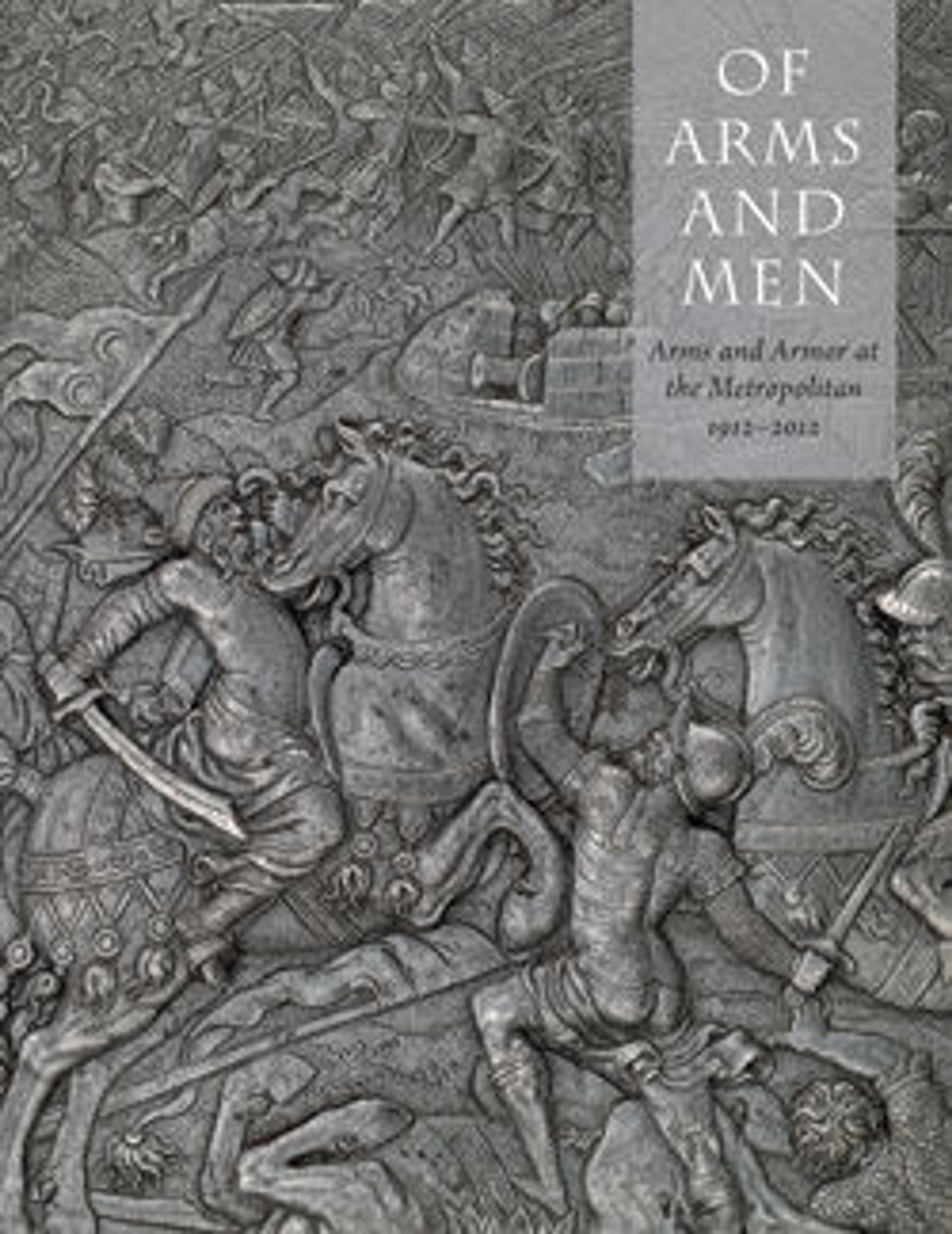Armor for Heavy Cavalry
One of the best-preserved French armors dating from the reign of Henry IV (1589–1610), this example demonstrates the French preference for completely gilt armors. It retains its original yellow silk helmet lining and red leather straps sewn with metallic thread. Matching this armor are a shaffron (defense for the horse's head), also in the Metropolitan Museum's collection (acc. no. 27.177.2), and a saddle, now in the Musée de l'Armée, Paris.
In spite of its rich decoration, this armor was intended for use in battle. It was made at a time when the lance had been abandoned by the heavily armored cavalry in favor of a pair of pistols kept in holsters at the front of the saddle. The presence of hand firearms on the battlefield led to the increasing weight of armors such as this and the gradual discarding of elements like the defenses for the lower legs.
In spite of its rich decoration, this armor was intended for use in battle. It was made at a time when the lance had been abandoned by the heavily armored cavalry in favor of a pair of pistols kept in holsters at the front of the saddle. The presence of hand firearms on the battlefield led to the increasing weight of armors such as this and the gradual discarding of elements like the defenses for the lower legs.
Artwork Details
- Title:Armor for Heavy Cavalry
- Date:ca. 1600
- Culture:French
- Medium:Steel, gold, leather, textile
- Dimensions:H. 57 in. (144.8 cm); Wt. 77 lb. 2 oz. (34.98 kg)
- Classification:Armor for Man-3/4 Armor
- Credit Line:Rogers Fund, 1927
- Object Number:27.177.1
- Curatorial Department: Arms and Armor
More Artwork
Research Resources
The Met provides unparalleled resources for research and welcomes an international community of students and scholars. The Met's Open Access API is where creators and researchers can connect to the The Met collection. Open Access data and public domain images are available for unrestricted commercial and noncommercial use without permission or fee.
To request images under copyright and other restrictions, please use this Image Request form.
Feedback
We continue to research and examine historical and cultural context for objects in The Met collection. If you have comments or questions about this object record, please contact us using the form below. The Museum looks forward to receiving your comments.
